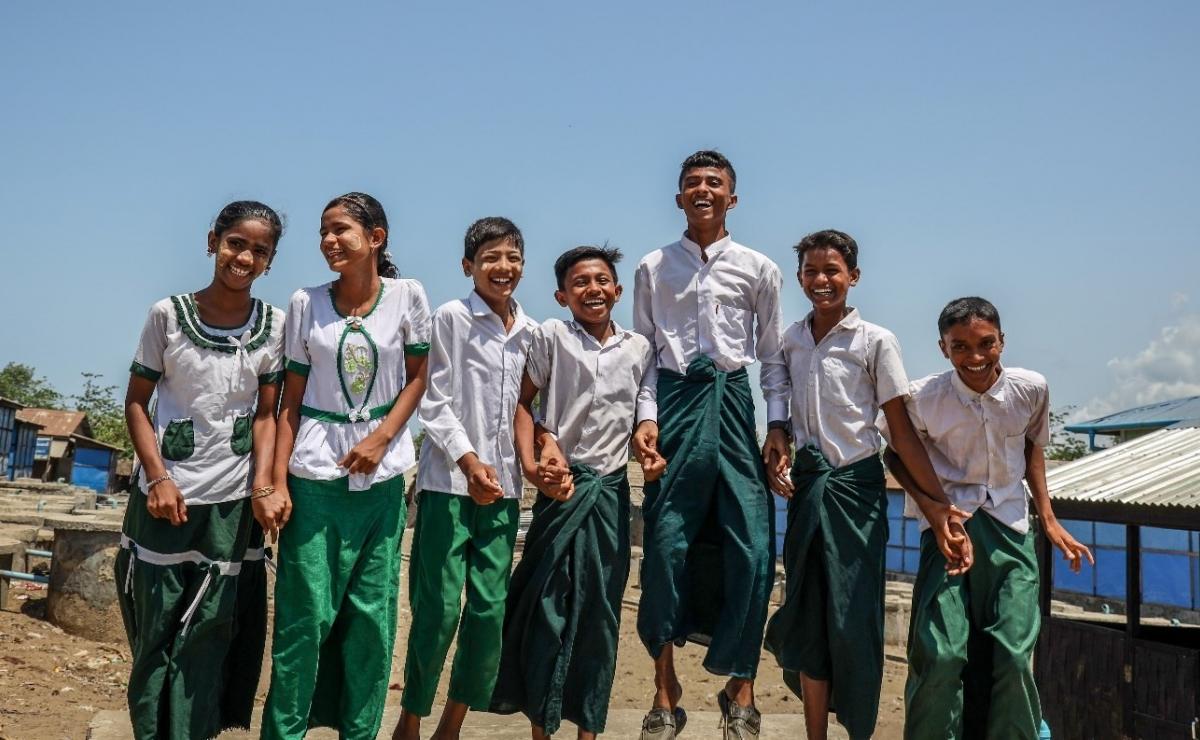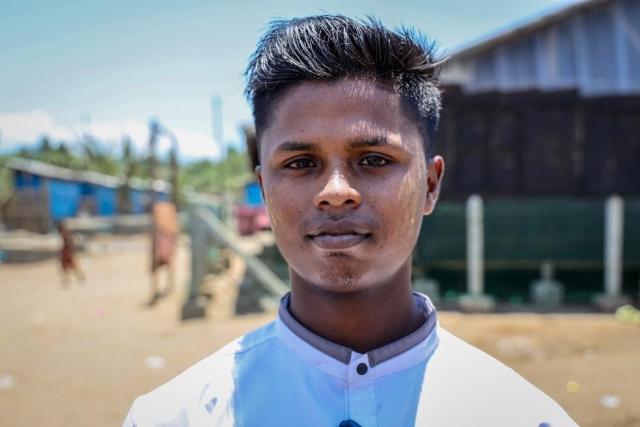Development of learning through training provided by LWF Myanmar, with funding from the European Union (EU)

Note: The story is based on the story of U Kyaw Kyaw, who is a teacher in a Temporary Learning Space (TLS) in Dar Pai IDP Camp, Sittwe Township.
Since 12 June 2012, when we were relocated to Dar Pai IDP Camp, families like ours have faced various trials. There have been times when it was not easy to fulfil even basic needs, and when it is impossible to support children’s education.
Not only can education transform a community into one that is modern and developed, but we also know that education is essential to peace. However, for those who live in IDP or refugee camps like ourselves, and who have difficulty accessing other parts of the country, it is not always possible to provide an education for our children. We never want to experience such a bitter moment in our lives again, relying on others to provide even the most basic needs for our lives.
In the middle of 2013, the UN, INGOs and a number of local organizations started to offer various kinds of assistance. During the same year, a UN team built two Temporary Learning Spaces (TLS) to educate children in our camp. We were very happy with the construction of the building. Children who wanted to go to school asked for permission to attend the school. We started with six teachers, including me, and our teachers started to educate the children in whatever way they could.

After more than a year, the LWF team shared an advertisement that we could apply for the position of TLS teacher in the camp. The people in the camp were very happy with my teaching. More people are starting to understanding that employment is not only for people like me with high school and middle school education, but that there are growing opportunities for people to work and for children to learn. LWF has built temporary learning spaces, and provided school furniture. Teachers’ salaries have also been provided. Once we were hired, we were offered training for our teachers who did not know much about teaching systems and methods.
Today, if you come to the camp where we live in, the children are not only accessing education, but they are also actively participating, discussing, cooperating, and asking questions that show critical thinking. Our children are already experiencing the benefits that come through education for all areas of child development.
Students also participate actively in educational events like sports and recreational activities and classroom competitions. LWF has contributed to such events by not only providing physical support for children’s education, but also improving the skills of the teachers, so that we can help students to master the curriculum. The training is provided at the beginning, middle and end of the school year.
One of these training courses is about lesson planning techniques used by teachers for the new curriculum of the Ministry of Education. This shows teachers how to help students learn the important points in the lesson, and the things to keep in mind during teaching and learning processes. The methods of assessment include measuring the participation of students in the classroom. These new teaching methods have been very effective in helping children develop their thinking.
Likewise, another unique course is student-centered curriculum training, which focuses on active teaching and learning. The methods covered include how children learn, how teaching strategies link to learning activities, groupwork, concept building, how to use the textbook effectively, and how to create worksheets. The children’s positive responses to these new methods can be seen today.
Not only the teachers but also the parents in our camp know that LWF has been supporting education in our camp, with funding from the European Union (EU). So, we are especially grateful to the LWF and its donors, who are helping to improve the education of the children in camps like ours.





